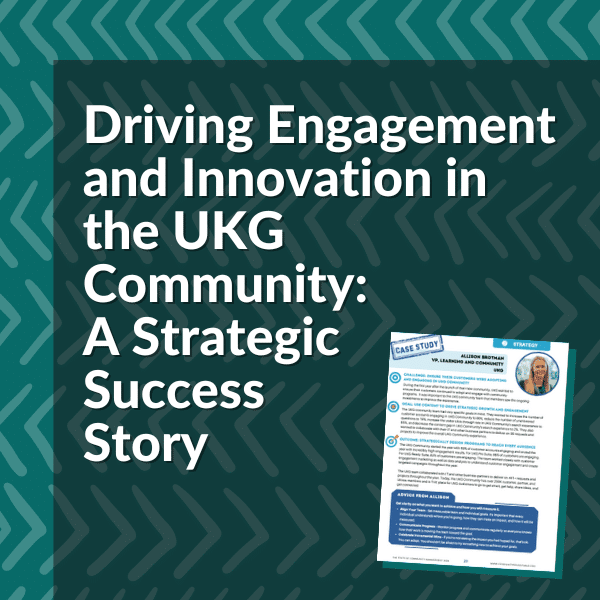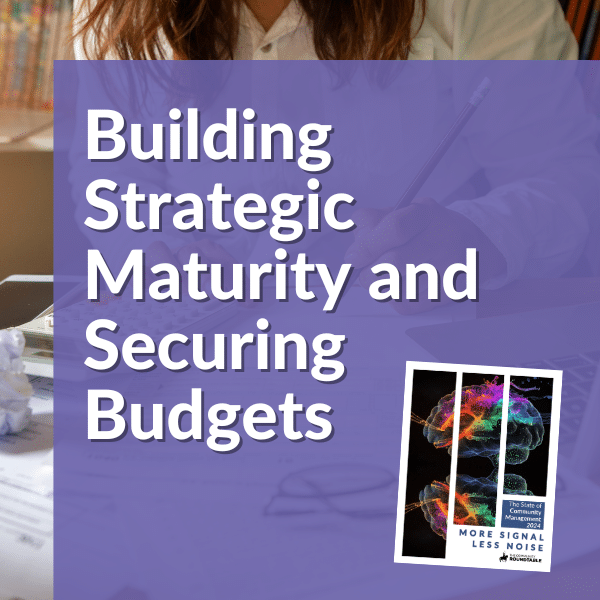The Community Maturity Model’s™ Community Management competency is an all-encompassing discipline that plays a vital role in ensuring the productivity and success of communities. Regardless of their unique backgrounds and individual approaches, community managers share a fundamental goal: to establish thriving and engaged communities in which members can effectively learn from each other and collaborate on ideas, issues, and challenges.
As experts in their field, community managers possess the necessary skills and knowledge to build and maintain these communities, while leveraging their expertise to promote a culture of growth and innovation. Often we see community managers struggle with imposter syndrome, and we’re here to remind you YOU KNOW YOUR COMMUNITY BEST.
It can be a struggle to keep up with everything your community needs to thrive – especially when you can easily get bogged down in the day-to-day rush of content/programs/reporting, etc.
Our 2023 State of Community Management research shared three tips for effective community management – making sure you are maintaining the overall health of your community program.
Three Tips for Effective Community Management
Define community roles. Focus on the “who-what-why” on your community team to better justify the team you need. WHO do you need? WHAT are they going to do? WHY is this role essential? The closer the roles on your team are aligned to your community strategy and roadmap, the more likely that they’ll become a funded resource. The Community Careers and Compensation Report is a good companion/resource to help you build this out.
Never stop evangelizing. Look for (and take) any opportunity to get out from behind your computer and talk with people inside your organization about the community program. This can be hard with the rise of remote work, but be creative and tell your story far and wide. You can never have enough allies who can speak your language and share how the community helps them do their job more efficiently and effectively.
Expand community training. Leverage third parties to scale community training and offer it to anyone that needs it. We recommend a baseline community training program as part of an effective community request process, ensuring you build and launch communities for constituents who have a plan and are fully resourced to launch and successfully grow the community.
We hope you can use these tips for effective community management to help ensure the health of your community and secure the resources you need to succeed.



